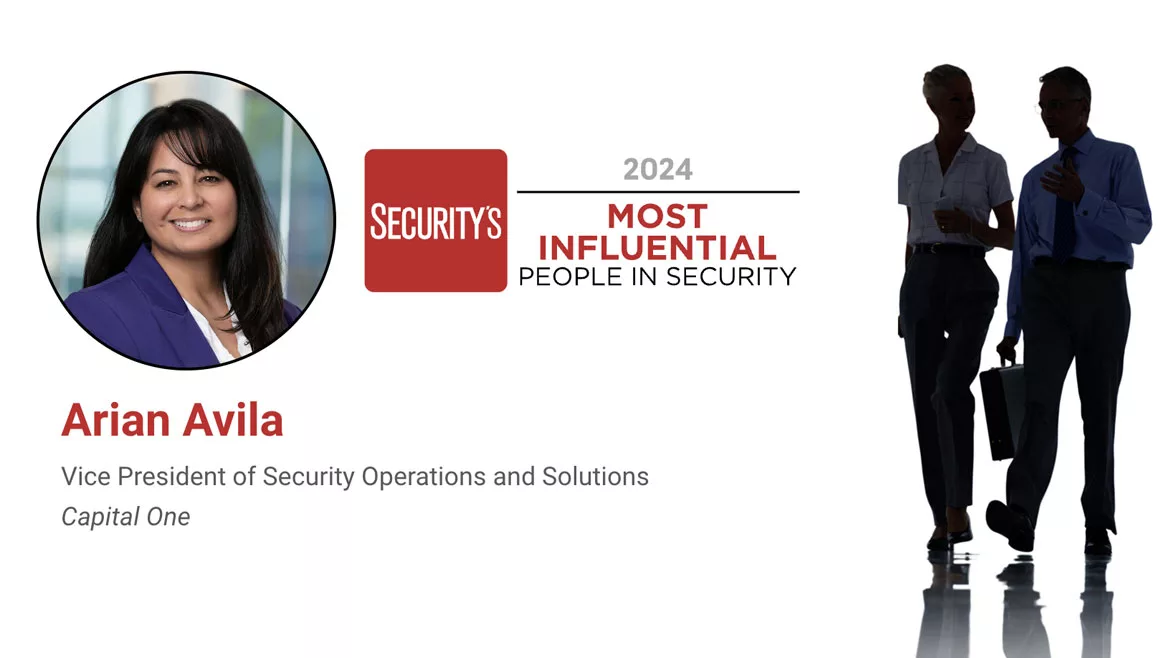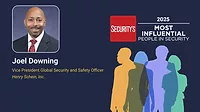Special Report
Arian Avila | Most Influential People in Security
Vice President of Security Operations and Solutions | Capital One

Rawpixel / iStock / Getty Images Plus / via Getty Images
Bio image courtesy of Avila
The importance of connections in security
Arian Avila started their career in academia, studying criminology and public policy. Avila’s grandfather was the Chief Forensic Pathologist for San Mateo County, California.
“Growing up, I was always fascinated by how he was able to figure out how someone died and how people could use that information to prevent others from dying. What ultimately got me into the field was my desire to help others and keep people safe,” Avila says.
Three years into their Ph.D. program, Avila was hired as a crime analyst for a national bank. Avila was the first to fill this position, expanding the role to include protest monitoring and building out an intelligence and analysis team for various U.S. regions.
“Prior to working in corporate security, I spent 10 years working in retail branches and banking centers. Working the frontline taught me the value of customer service and people engagement and got me comfortable with uncertainty, never knowing what transaction I was going to have to conduct or what financial need I could help solve for. Like security, no day in a banking center is ever the same,” Avila says.
Avila then began working with the non-U.S. team, managing analysts all over the world. She was responsible for regional analytics involving crime, terrorism, geopolitics, travel security and more. “During this time, I had the opportunity to lead a global project focused on standardization and connection of four global security operation centers (GSOCs),” Avila says. “From there I was promoted to Global Intelligence Director which included leading the two teams I previously managed, Travel Safety, Strategic Initiatives, the Fusion Center and a 24/7/365 event monitoring team.”
After this, Avila went on to become the Chief Operating Officer (COO) for Global Corporate Security. In this role, Avila led business operations, strategy, governance and global intelligence. Avila transitioned into leading safety strategy, including background screening and life safety. They managed OSHA governance and oversaw workplace violence training alongside insider threat prevention.
What ultimately got me into the field was my desire to help others and keep people safe.
“Just as that was picking up steam, COVID-19 happened and I was appointed to be the Corporate Security Lead on the enterprise COVID taskforce where I stood up a monitoring and reporting team, providing executive and board level updates and built the company’s health and safety framework that drove return to office and travel decisions,” Avila says.
Currently, Avila serves as the Vice President of Security Operations and Solutions at Capital One. Their position included security technology, executive protection, threat management and their global security operations center (GSOC). “When I joined corporate security, intelligence was a relatively novel function, having to continuously show the value of the program with little to no budget. This forced creativity, problem solving, salesmanship and working through others. I learned how to navigate for resources, pitch to stakeholders, and create leverage,” Avila says.
Avila works to improve the safety of security leaders as well. She’s worked on trauma training and awareness, knowing that security leaders are often at the forefront of stressful and potentially dangerous situations.
“I will participate in an upcoming GSX panel on Mental Health and Wellbeing called Guarding the Guardians,” Avila says.
Avila encourages prospective security leaders to avoid comparison. “We don’t celebrate failures or challenges as much as we should or my resume would be chalked full of them. The focus is not on the fail but on what that fail led to — innovation, resilience, and growth,” Avila says.
Looking for a reprint of this article?
From high-res PDFs to custom plaques, order your copy today!







